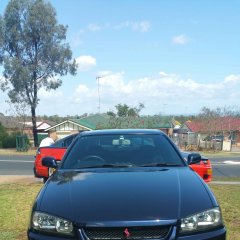Not Being Out To Find 98 Octane Fuel.
Announcements
-
Similar Content
-
Latest Posts
-
By joshuaho96 · Posted
AA100 and AA110 are supposedly not cross listed, not sure what the differences are. Most likely you're better off rebuilding what you have unless the housing is trashed by debris circulating in the system or significant amounts of cavitation. -
By Watermouse · Posted
Try; skylinespares.com.au there was a couple of sets of Autech last I looked -
Not my proudest moment, but about 6 years ago, i did an oil change on my ex-gf's car while drunk. It was a Toyota Rav4 so they had a weird oil filter holder device that's not the standard oil filter. I went to start up the car and drove it from the driveway to the parking spot and i turned around to see the biggest oil spill i ever seen. It didn't end up being a problem because i filled the oil back up and tightened the filter properly, but after that experience i never worked on my cars drunk.
-
By soviet_merlin · Posted
Neat, thanks! There's a Walbro 460 in there currently and it has never bothered me. If it's not getting any worse I'm fine with that. Murphy's law is inviolate. So don't you worry, I've got you covered. I filled up the tank just that morning on the way home. It's about as full as can be. I'm not going to touch it though. The car will go to Unigroup to get it done properly. See how it goes.
-





Recommended Posts
Create an account or sign in to comment
You need to be a member in order to leave a comment
Create an account
Sign up for a new account in our community. It's easy!
Register a new accountSign in
Already have an account? Sign in here.
Sign In Now